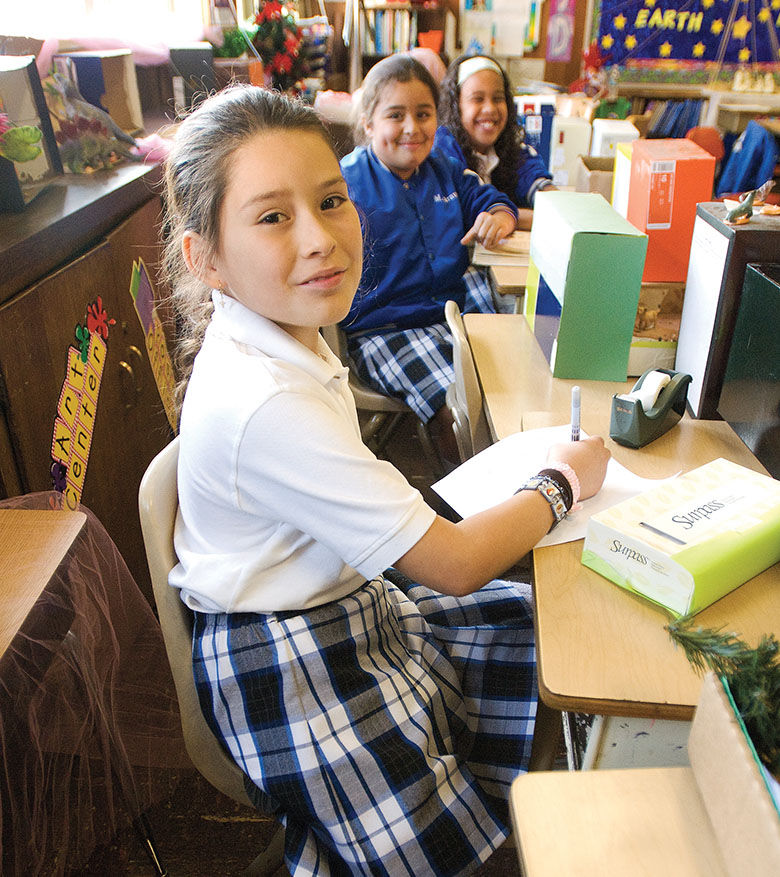As the remaining days of summer slip by and students return to their schools for another academic year, there is great hope and promise for Catholic schools throughout the Archdiocese of Los Angeles.
The challenges that Catholic schools have experienced across the U.S. over the past number of years have been well documented, and the Archdiocese of Los Angeles has not been an exception to those challenges. From 2001-2010, enrollment dropped nearly 20,000 students in our Catholic schools, and this precipitous decline was mirrored in dioceses across the country.
The positive news is that since 2010 we have added students to a modest degree, and the steep decline we had experienced has been stopped. But while that is indeed positive news, the potential for more robust growth in the coming years is what provides the hope and promise for the future.
The Archdiocese of Los Angeles is the largest archdiocese in the country, with close to 5 million Catholics. Sadly, only 8 percent of the Catholic school-age population is currently enrolled in a Catholic school. This means not even one in 10 Catholic students are in a Catholic school.
If we were to get one or two in 10 Catholic students in our schools, it would result in tens of thousands more students in our schools.
So the potential for growth is there, but how do we get there? At the Department of Catholic Schools we believe that parents choose their child’s school based on the value it provides to both the student and the family.
This value is centered first and foremost on our Catholic faith, which drives all that we do in our schools. Education in facts and figures alone runs the risk of becoming a purely utilitarian exercise, and we know that there is more to human existence than facts and figures. So faith has to be the cornerstone of every Catholic school.
While faith is primary, academic excellence is also essential to ensuring our schools have value for students and families. Ensuring that our academic programs challenge students to grow and to reach their individual God-given potential is important because we recognize that students in our Catholic schools will be the future leaders for both our Church and society. A key aspect of our mission is preparing students intellectually for that future leadership role.
There are also many intangible positive aspects of Catholic schools. The sense of community, the commitment of principals and teachers and the tremendous parent involvement all contribute to an ideal learning environment.
In his most recent book, “The Road to Character,” David Brooks identifies two sets of virtues that human beings possess. One set consists of the “résumé virtues,” which include success, fame, money and achievement, and they ask the question, “How do things work?” The other set are the “eulogy virtues,” which include compassion, love, kindness and consideration, and they ask the question, “Why do things exist?”
The résumé virtues are what we focus on for professional success, and are addressed in nearly every school environment. The eulogy virtues are what we want to be remembered most for at the end of our life on earth and they are not addressed as directly in many academic environments, even though most of us would identify them as being ultimately most important.
While all schools can address the résumé virtues, Catholic schools have the unique capacity to address both sets of virtues so as to ensure students receive a solid, well-rounded instructional foundation. This alignment between the two sets of virtues is what provides the education of the whole child and it provides a key intangible value of Catholic schools.
We are grateful to all of the parents and families who make sacrifices to send their children to Catholic schools. If you don’t currently have your child in a Catholic school, please consider visiting one in your neighborhood for a tour so that you can learn more specifically about the tremendous value they provide to students.

